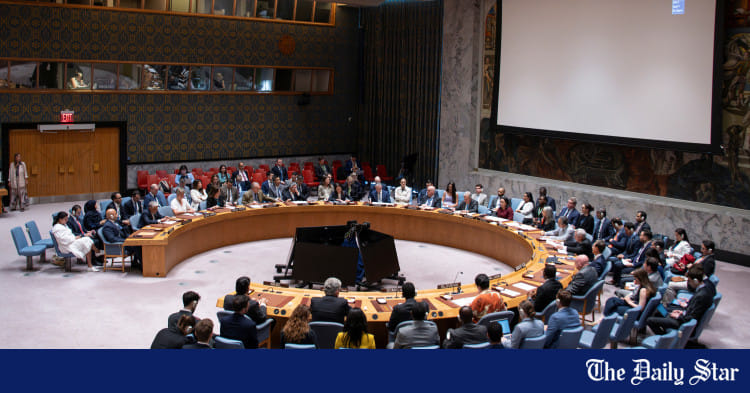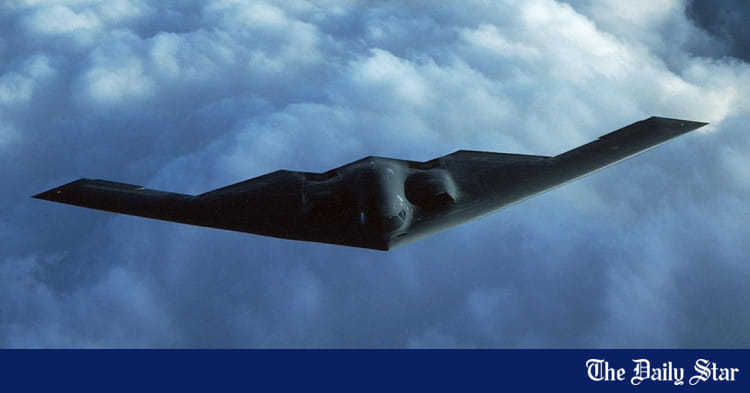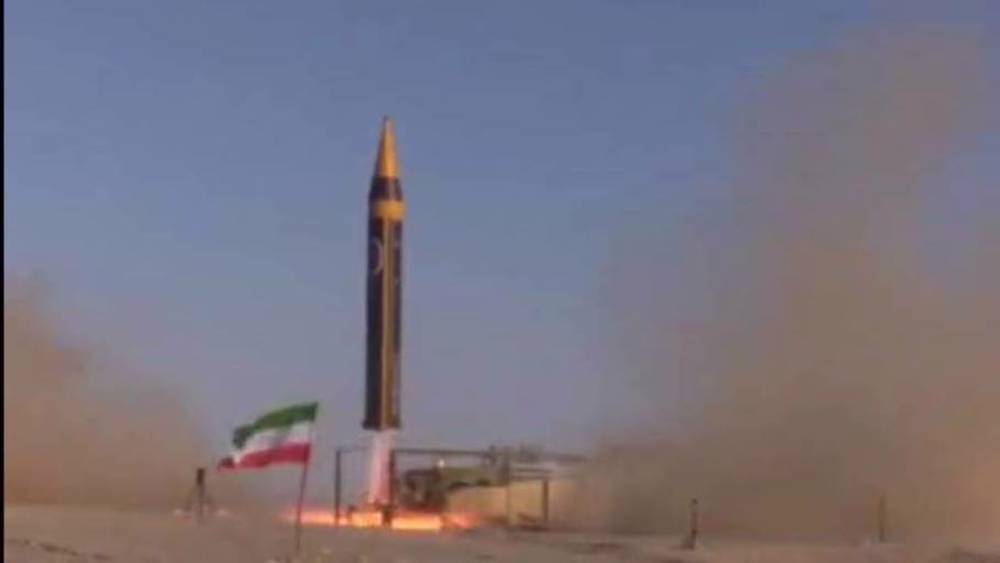- Copy to clipboard
- Thread starter
- #1,441
Saif
Senior Member
- Messages
- 14,067
- Reaction score
- 7,446
- Origin

- Residence

- Axis Group


Arab states erupt in condemnation after US strikes on Iran
Arab countries strongly condemned the US air strikes on nuclear facilities in Iran, warning of serious repercussions and calling for a return to diplomacy.
Arab states erupt in condemnation after US strikes on Iran
AFP Dubai
Published: 22 Jun 2025, 23: 04

This handout satellite picture provided by Maxar Technologies and taken on 22 June 2025, shows damage after US strikes on the Isfahan nuclear enrichment facility in central Iran. AFP
Arab countries on Sunday strongly condemned the US air strikes on nuclear facilities in Iran, warning of serious repercussions and calling for a return to diplomacy.
Iran's former regional rival, Saudi Arabia, which resumed ties with Tehran in a Chinese-brokered detente in 2023, expressed "great concern" over the attacks.
Gulf countries have been engaged in intense but fruitless diplomatic efforts since Israel launched its air campaign on their neighbour Iran on 13 June.
Many of the oil-rich countries host major US assets and bases, and fear that a spillover from the war could threaten their security and economies.
Qatar, host of the biggest US military base in the Middle East, said it feared "catastrophic consequences" for the region and the entire world.
Yemen's Huthi rebels repeated threats to target US vessels and warships in the Red Sea after the overnight strikes, which they described as a "war declaration" on the Iranian people.
On Saturday, the Iran-backed group had threatened to resume attacks on US vessels and warships in the Red Sea, despite a recent truce, should Washington strike Iran.
US President Donald Trump said the attacks destroyed Iran's main nuclear sites, describing them as a "spectacular military success".
But his allies in the Gulf urged a return to negotiations.
Oman, which was mediating recent nuclear talks between Washington and Tehran, strongly condemned the US strikes, labelling them illegal and calling for de-escalation.
The United Arab Emirates also expressed concern, calling for "an immediate end to the escalation".
Bahrain told most of its government employees to work from home until further notice, while its foreign ministry also urged a return to talks.
The US Navy's Fifth Fleet, which covers the region, is based in Bahrain.
Meanwhile, Kuwait activated an emergency plan that includes readying shelters.
The Tehran-backed Palestinian militant group Hamas condemned what it called "blatant US aggression" against Iran.
Iraq, another country that hosts US bases, expressed "deep concern and strong condemnation", government spokesperson Basim Alawadi said, calling the attacks "a grave threat to peace and security in the Middle East".
Fears are growing in Iraq over a possible intervention by Iran-backed armed factions, who have threatened Washington's interests in the region if it joins Israel in attacking Iran.
Lebanese President Joseph Aoun, largely seen as close to the United States, urged both sides to resume talks to restore stability.
Lebanon has been reeling from a destructive conflict between Israel and the Iran-backed Hezbollah group that ended with a fragile truce last November.
Egypt also condemned the escalation, warning of "dangerous repercussions", while Jordan's foreign ministry voiced "deep concern".
AFP Dubai
Published: 22 Jun 2025, 23: 04
This handout satellite picture provided by Maxar Technologies and taken on 22 June 2025, shows damage after US strikes on the Isfahan nuclear enrichment facility in central Iran. AFP
Arab countries on Sunday strongly condemned the US air strikes on nuclear facilities in Iran, warning of serious repercussions and calling for a return to diplomacy.
Iran's former regional rival, Saudi Arabia, which resumed ties with Tehran in a Chinese-brokered detente in 2023, expressed "great concern" over the attacks.
Gulf countries have been engaged in intense but fruitless diplomatic efforts since Israel launched its air campaign on their neighbour Iran on 13 June.
Many of the oil-rich countries host major US assets and bases, and fear that a spillover from the war could threaten their security and economies.
Qatar, host of the biggest US military base in the Middle East, said it feared "catastrophic consequences" for the region and the entire world.
Yemen's Huthi rebels repeated threats to target US vessels and warships in the Red Sea after the overnight strikes, which they described as a "war declaration" on the Iranian people.
On Saturday, the Iran-backed group had threatened to resume attacks on US vessels and warships in the Red Sea, despite a recent truce, should Washington strike Iran.
US President Donald Trump said the attacks destroyed Iran's main nuclear sites, describing them as a "spectacular military success".
But his allies in the Gulf urged a return to negotiations.
Oman, which was mediating recent nuclear talks between Washington and Tehran, strongly condemned the US strikes, labelling them illegal and calling for de-escalation.
The United Arab Emirates also expressed concern, calling for "an immediate end to the escalation".
Bahrain told most of its government employees to work from home until further notice, while its foreign ministry also urged a return to talks.
The US Navy's Fifth Fleet, which covers the region, is based in Bahrain.
Meanwhile, Kuwait activated an emergency plan that includes readying shelters.
The Tehran-backed Palestinian militant group Hamas condemned what it called "blatant US aggression" against Iran.
Iraq, another country that hosts US bases, expressed "deep concern and strong condemnation", government spokesperson Basim Alawadi said, calling the attacks "a grave threat to peace and security in the Middle East".
Fears are growing in Iraq over a possible intervention by Iran-backed armed factions, who have threatened Washington's interests in the region if it joins Israel in attacking Iran.
Lebanese President Joseph Aoun, largely seen as close to the United States, urged both sides to resume talks to restore stability.
Lebanon has been reeling from a destructive conflict between Israel and the Iran-backed Hezbollah group that ended with a fragile truce last November.
Egypt also condemned the escalation, warning of "dangerous repercussions", while Jordan's foreign ministry voiced "deep concern".








